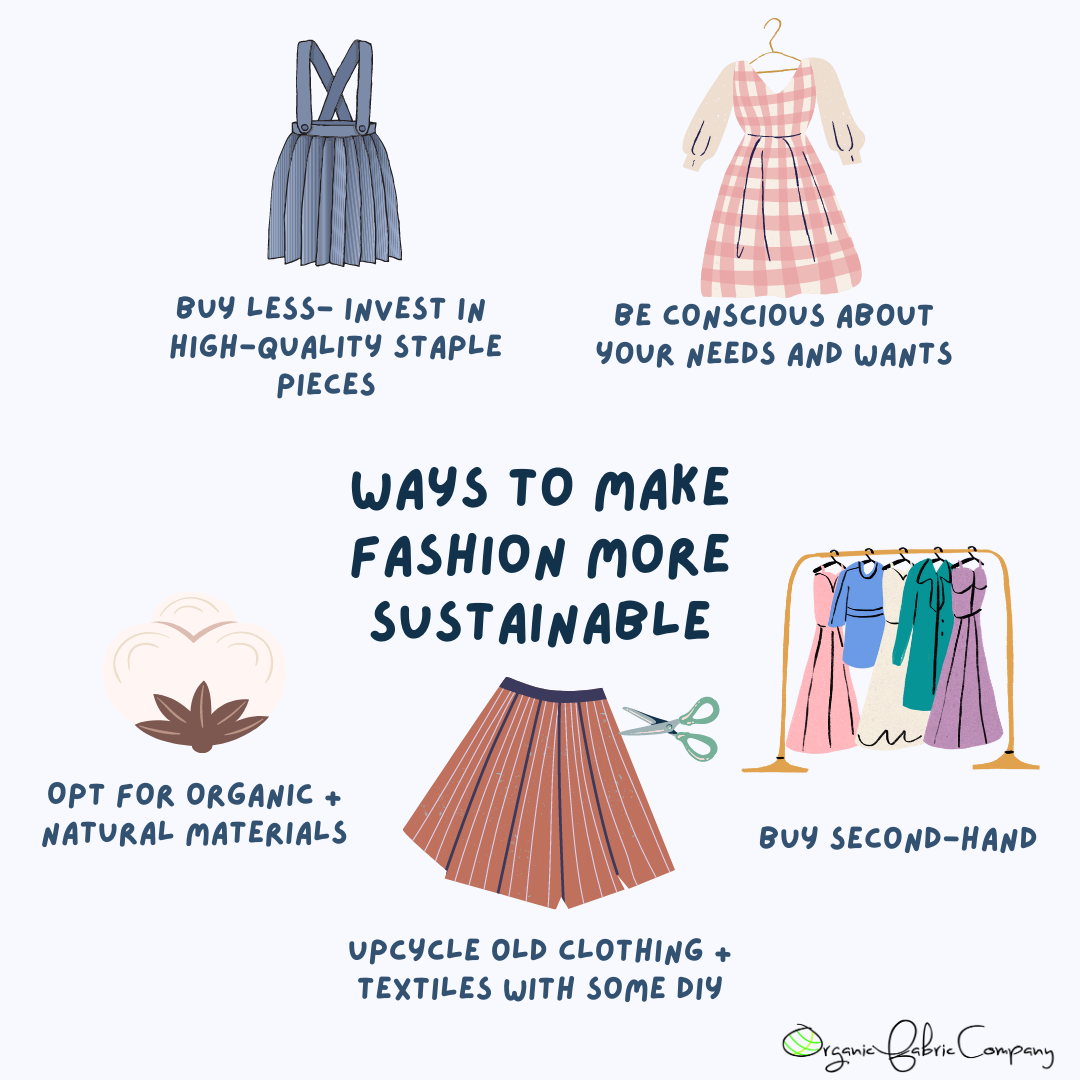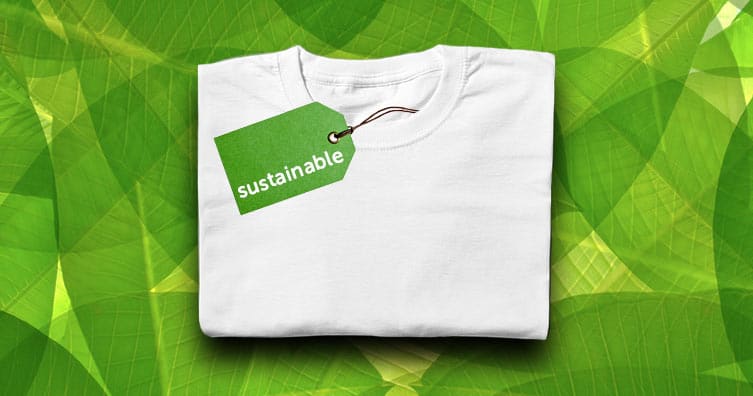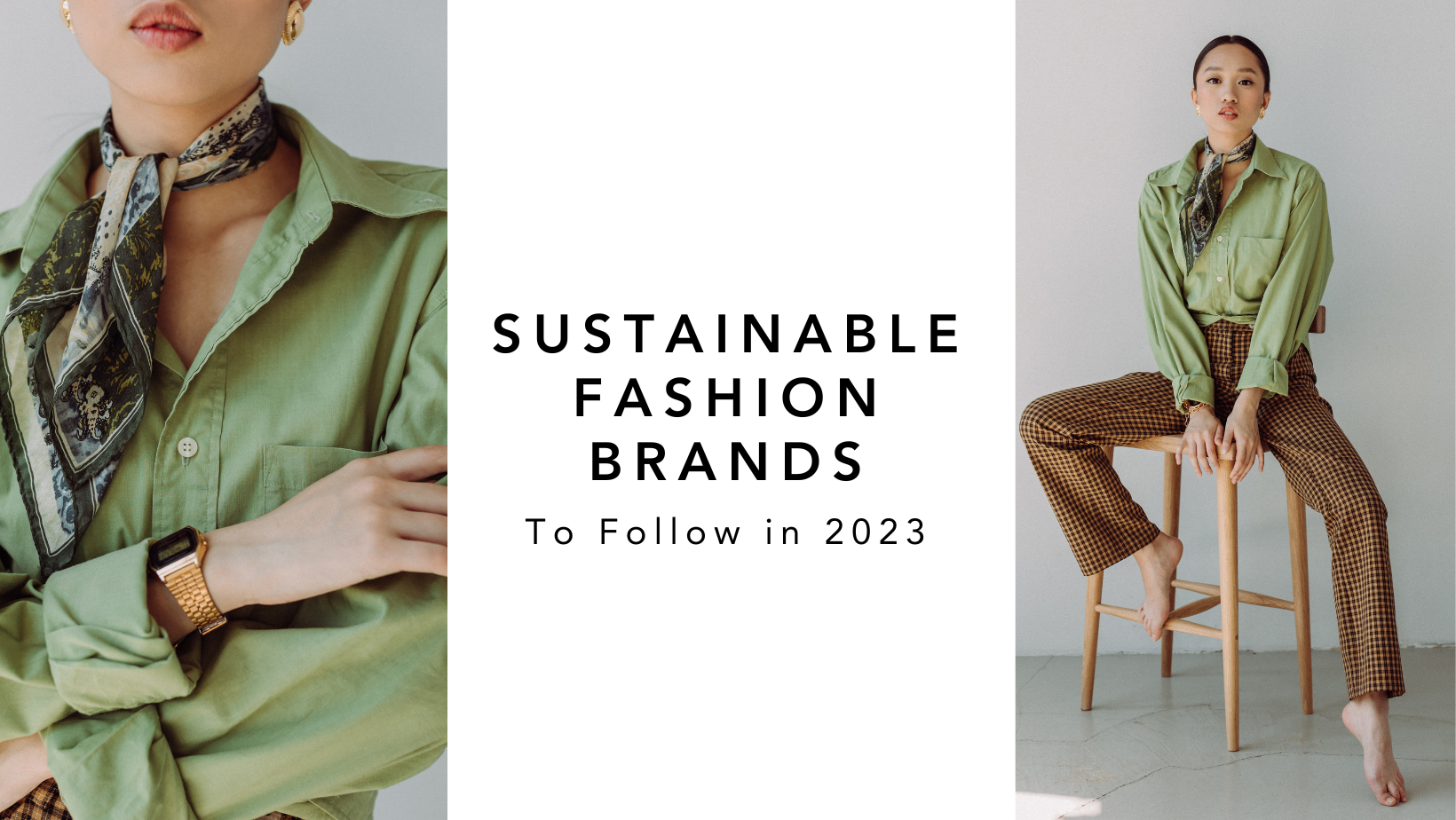Cape Town Sustainable Fashion: Moral Clothing for a Better Planet
Cape Town Sustainable Fashion: Moral Clothing for a Better Planet
Blog Article
Stay Ahead of the Contour by Exploring Cutting-edge Fashion Fads
In an industry as dynamic as fashion, staying in advance includes greater than simply adhering to current patterns-- it requires an exploration of advancement. Smart fabrics, for circumstances, are changing garments into practical masterpieces, while 3D printing is changing layout procedures with its adjustable, waste-reducing capabilities. As sustainability ends up being a keystone, advancements like environment-friendly materials and circular fashion practices are reshaping ecological responsibility - Cape Town Sustainable Fashion. Furthermore, the merging of technology and style proclaims a new era of consumer engagement. How, then, can these arising trends redefine the future of style, and what effects do they hold for brands seeking to prosper in this developing landscape?

Embracing Smart Textiles
Over the last few years, the apparel industry has seen a transformative change with the combination of wise textiles, a cutting-edge development that blends innovation with textile. This development stands for not only a blend of looks and capability yet also a substantial jump towards sustainability and customization in style. Smart textiles, likewise called e-textiles, embed innovative electronics such as sensing units and conductive threads within the textile, making it possible for garments to connect with the user or the setting.
These textiles are developed to monitor physical parameters, such as heart rate or body temperature level, giving real-time wellness analytics. Past health and wellness applications, wise textiles are likewise being made use of for adaptive apparel, which can transform color or pattern in reaction to environmental stimuli, hence supplying a dynamic fashion experience.
In addition, the growth of energy-harvesting fabrics that generate power from activity or sunshine is leading the way for self-sufficient wearable modern technology. This innovation is interesting environmentally conscious consumers and developers aiming to minimize the environmental footprint of style. As r & d in this area breakthrough, clever textiles are expected to become increasingly prevalent, improving the landscape of modern style with their multifunctional abilities.
The Rise of 3D Printing
Reinventing the manufacturing landscape, 3D printing has actually become a game-changer in the apparel industry. This innovative modern technology has made it possible for designers to press the limits of creative thinking, generating complex and customized garments that were formerly unthinkable. By leveraging digital design and additive manufacturing, 3D printing helps with the creation of intricate geometries and patterns, allowing designers to explore new textures and structures.
A remarkable benefit of 3D printing in style is its capability to produce on-demand, reducing waste and decreasing inventory needs. This efficiency not only enhances manufacturing procedures but likewise permits rapid prototyping, allowing developers to bring their visions to life in a shorter timeframe. Additionally, 3D printing supports modification somewhat unparalleled by conventional techniques, providing individualized fits and special designs customized to specific customer choices.
The surge of 3D printing has also equalized style, making it accessible to arising developers that can now make top quality pieces without substantial financial investment in standard production framework. As modern technology remains to advancement, the fashion business is poised to harness the complete potential of 3D printing, exploring brand-new products and strategies that will certainly redefine how fashion is conceived and generated.
Sustainable Style Technologies
As the style market comes to grips with the pressing demand for ecological obligation, sustainable style advancements have emerged at the leading edge of transformative adjustment. The Read Full Report expanding awareness of eco-friendly influence has fueled a shift in the direction of even more eco-conscious practices and products. Brand names and designers are currently prioritizing sustainability, incorporating methods that lessen waste and decrease carbon footprints.
One substantial advancement is the surge of round style, which highlights recycling and upcycling to expand the lifecycle of garments. This technique not only reduces waste but likewise urges consumers to adopt an extra conscious technique to garments intake. Furthermore, using lasting products, such as organic cotton, hemp, and recycled polyester, has actually gotten grip. These materials call for much less water and power throughout production, considerably decreasing ecological effect.
One more development hinges on the adoption of ingenious dyeing strategies that make use of all-natural dyes or see this waterless procedures, thus lowering the substantial quantities of water and chemicals generally made use of in fabric dyeing. Furthermore, improvements in biotechnology have resulted in the creation of lab-grown leather and fabrics, offering eco friendly and cruelty-free alternatives to conventional materials. Via these introducing efforts, the garment industry is making meaningful strides in the direction of a much more sustainable future.

Tech-Integrated Garments
Tech-integrated apparel represents a cutting-edge fusion of fashion and innovation, improving just how people engage with their clothing. This innovative domain name is noted by the incorporation of smart textiles and embedded digital elements, boosting both functionality and visual appeal. From fitness trackers installed in sportswear to heated jackets controlled using smart device applications, tech-integrated apparel uses customers unprecedented comfort and flexibility.
Introducing brand names are driving this fad, focusing on producing garments that react to environmental stimulations or individual commands. For instance, some garments can alter color or pattern in feedback to temperature shifts, while others include biometric sensing units to keep track of wellness metrics like heart price or stress and anxiety degrees. The seamless assimilation of innovation into fabrics also encompasses environmental sustainability, with efforts to create self-cleaning materials or garments that adapt to weather, therefore lessening the demand for numerous layers.
In addition, the development of wearable modern technology is not just restricted to clothing however reaches accessories like watches and eyeglasses, more widening the range of tech-integrated fashion. As the industry remains to innovate, the possibility for personalization and personalization in clothing expands, offering consumers one-of-a-kind, tech-enhanced style experiences that deal with their specific needs and choices.
Future of Virtual Fashion
In recent times, the future of online fashion has actually become a transformative pressure within the market, leveraging advancements in digital innovation to redefine exactly how style is produced, experienced, and consumed. By incorporating look at this website enhanced fact (AR), virtual reality (VIRTUAL REALITY), and 3D layout tools, designers can now craft interactive and immersive experiences that go beyond traditional style borders. Virtual style enables the production of garments that exist entirely in digital settings, supplying endless opportunities for advancement without the constraints of physical manufacturing.
This digital change not only presents opportunities for creative expression yet also addresses sustainability worries fundamental in typical style methods. Cape Town Sustainable Fashion. By getting rid of the demand for physical resources, digital fashion lowers waste and lessens carbon impacts. Furthermore, the rise of digital style aligns with the boosting consumer demand for distinct and individualized experiences, as virtual garments can be tailored and tailored to private preferences effortlessly

Final Thought
The fashion business's future lies in the assimilation of innovative technologies and lasting techniques - Cape Town Sustainable Fashion. Smart textiles and tech-integrated apparel are improving performance, while 3D printing supplies opportunities for modification and waste reduction. Sustainable fashion, through round strategies and eco-friendly materials, shows a dedication to environmental stewardship. Furthermore, virtual fashion is positioned to redefine customer interactions. Adapting to these patterns is important for brands seeking to stay relevant and competitive in this swiftly developing landscape.
In current years, the fashion sector has witnessed a transformative shift with the integration of smart fabrics, a cutting-edge development that blends technology with material.As the fashion market grapples with the pressing need for ecological responsibility, lasting fashion innovations have actually emerged at the forefront of transformative change.In recent years, the future of virtual fashion has arised as a transformative pressure within the industry, leveraging improvements in digital technology to redefine just how style is produced, experienced, and eaten. The rise of online style aligns with the boosting customer demand for customized and special experiences, as virtual garments can be customized and tailored to specific preferences with convenience.
The style industry's future lies in the integration of sustainable practices and innovative modern technologies.
Report this page